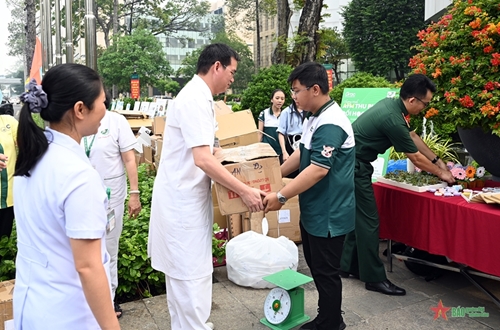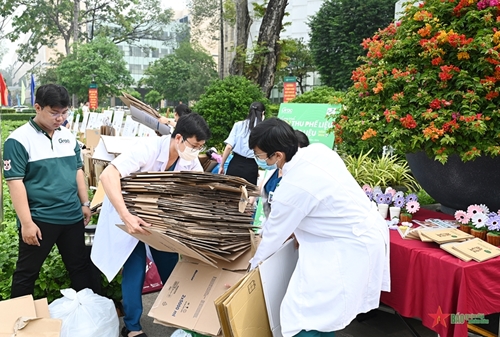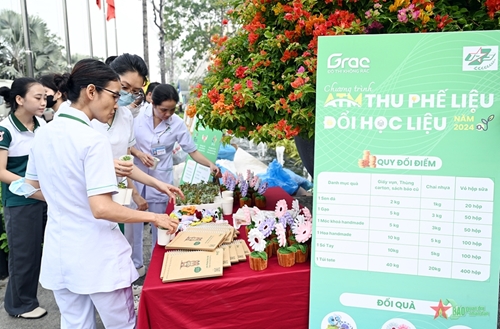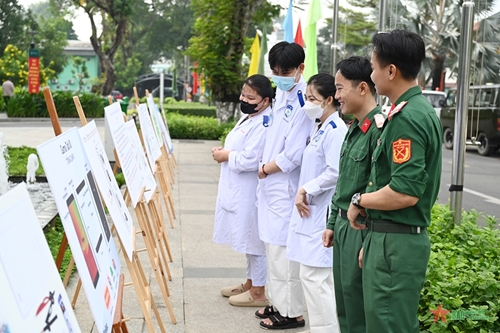The program was held to respond to the Vietnam Fatherland Front Central Committee, the Ministry of Education and Training, and the Vietnam Education Trade Union’s call for citizens, organizations, and businesses’ efforts to facilitate teaching and learning activities.
    |
 |
|
Sr. Col. Bui Duc Thanh donates waste to the program. |
The activity aimed to raise hospital staff, employees, and patients’ awareness of waste classification to reduce the risk of spreading harmful agents and hazardous elements. It was also expected to contribute to cutting costs for waste collection and treatment and protecting the environment and landscape.
Departments, organizations, and units under the hospital, as well as businesses in Go Vap district, Ho Chi Minh City, were urged to exchange scrap paper, old books and newspapers, cardboard boxes, plastic bottles, and aluminum cans for gifts like stationery and flower pots.
    |
 |
|
Agencies and units under the hospital actively join the event. |
The hospital aims to achieve the program’s target of exchanging waste for 100 Xelex Gama Tab X8 tablets and 100 basic learning kits for people in difficult circumstances in areas severely affected by Typhoon Yagi through the Vietnam Education Trade Union. Specifically, 1 ton of scrap paper/400kg of plastic/100kg of aluminum can be exchanged for one tablet, and 100kg of scrap paper/40kg of plastic/10kg of aluminum for one basic learning kit (including notebooks, ballpoint pens, pencils, rulers, glue, etc.).
    |
 |
|
The collected waste will be exchanged for gifts. |
According to environmental protection organizations, Ho Chi Minh City alone produces an average of 2,674 tons of paper waste daily. Of this, only 40%, or approximately 1,070 tons, is collected, while the remainder is discarded with household waste.
    |
 |
|
The hospital’s medical staff learn about the significance of waste classification. |
Senior Colonel Bui Duc Thanh, Deputy Director of Military Hospital 175, said that the program is organized with the aim of raising awareness among medical staff, patients, and their families of the importance of waste classification.
Translated by Tran Hoai